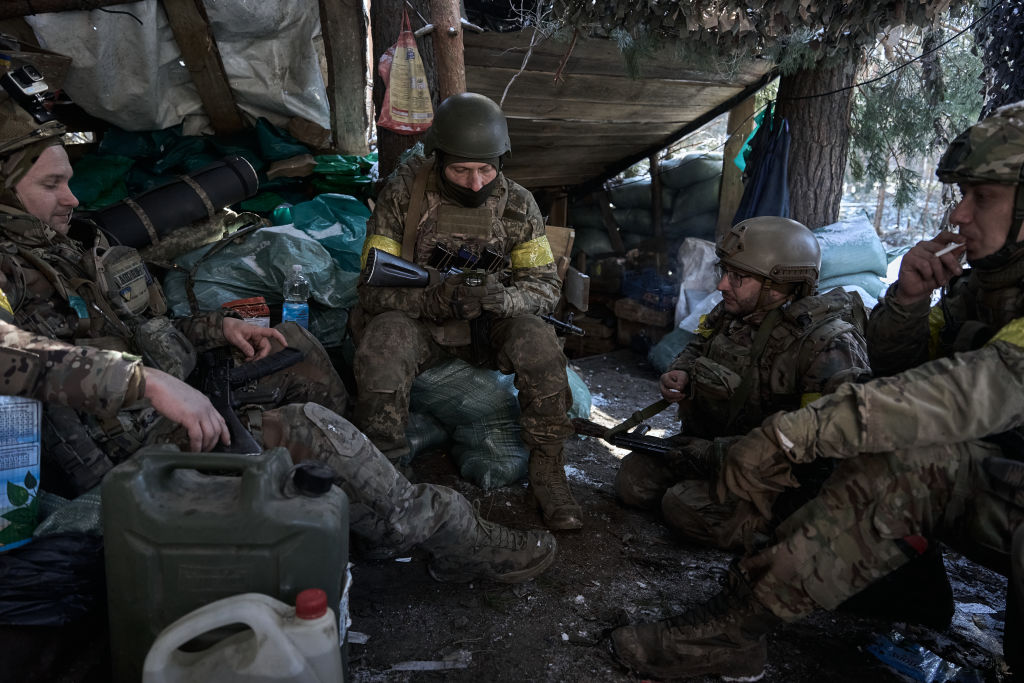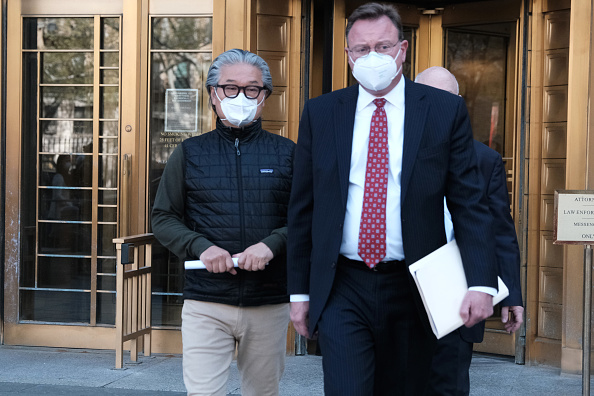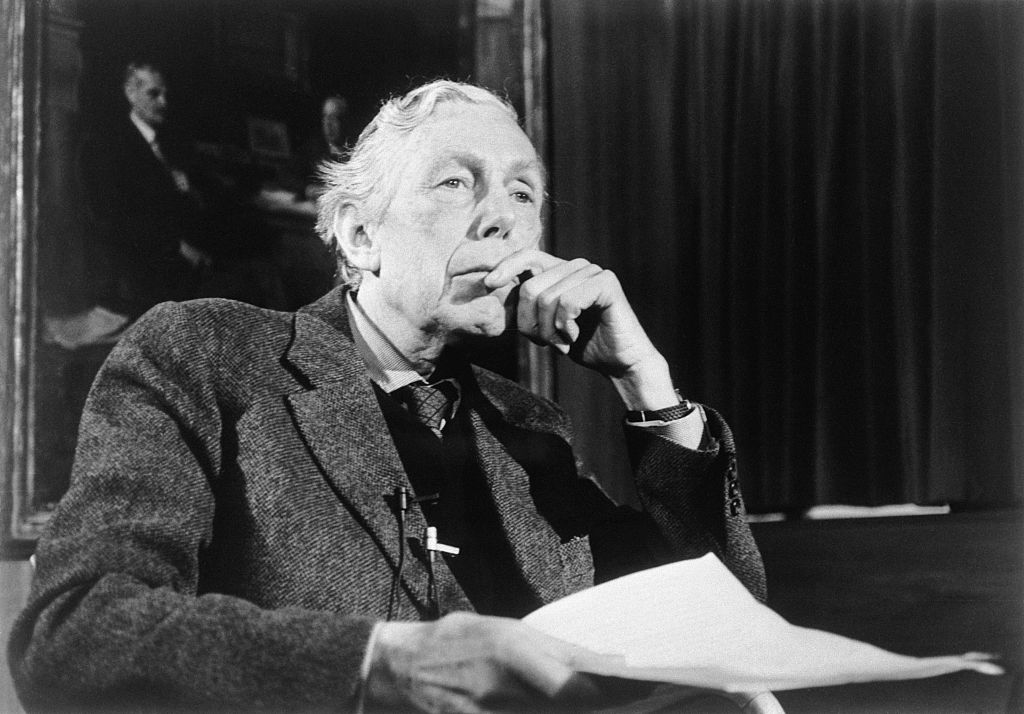Bohdan Krotevych, a chief of the semi-independent Azov Brigade of the Ukrainian Army, declared recently that Japan, Finland, Moldova, Georgia and Poland should use the opportunity of the Ukrainian invasion of Kursk to seize back land stolen by Russia. There might be a deranged soul or two in Zelensky’s team that agrees with him, and possibly some raving lunatic in the State Department also, but there’s certainly just one person in the world who is wholeheartedly at one with the idea: Vladimir Putin. Nothing would suit his needs, and the hallucinatory dreams of the Russian die-hard nationalists, than such a confirmation of a worldwide conspiracy against Mother Russia, headed by Ukraine.
Firstly, a word of caution about Mother Russia’s present enemy. Any outsiders who declare they understand Ukraine have been gravely misinformed. Ukraine is rather like the love-child of Northern Ireland and Cyprus coupling with the offspring of Schleswig Holstein and Kurdistan, divided by the square root of Jerusalem and multiplied by π .
The Azov Brigade, for example, consists largely of Russian-speaking Ukrainian separatists in part led by a Cyprus-based Ukrainian Jewish oligarch. Perhaps they alone understand both the complexity of the dynamics of the region and the emotional significance of the recent Ukrainian incursion into the Kursk Oblast.
If Ukraine is difficult, then Russia is to the power of ten, multiplied by the speed of light. The Russian empire is not what it was, to be sure, but it is nonetheless vast. Beginning with a few medieval Muscovy baronies, its growth was based on a ceaselessly unfolding propinquity, which spread the reach of the Russian Caesars (now pronounced Tsar or Czar) from the Baltic and the Caspian seas to the Pacific Ocean and the Sea of Japan. This is the largest contiguous empire in world history. It is also the birthplace of some of the world greatest scholars, dreamers, composers, musicians and writers, most of whom had a profoundly mystical view of their motherland, as well as having an extraordinary tolerance of, and indeed enthusiasm for, violence.
Whatever you do, please, please take these people very seriously indeed. Moreover, countless non-Russian peoples have embraced the very idea of Russianness, as it gives them access to an identity that is deeply intellectual, musical, literary and emotional. Stalin, a Georgian, became a zealous convert to Russianness, and even as the armies of the Third Reich closed on Moscow in 1941, refused to leave the capital of all the Russians.
Moreover, most Slavic people – especially if they are Orthodox Christians – defer to the suzerainty of Moscow. Even ardently Catholic Poles, who had the good fortune to be conquered and their country ravaged by both the Third Reich and Soviet Union, will begrudgingly admit the intrinsic superiority of the Russian language.
One of the central characteristics of this “Russianness” is belief that the rest of the world is against them. This is not mere paranoia – which after all is a clinically-treatable condition – but is a defining emotion that is buried so deep that it can often escapes any cognition. But if given “proof” that the world is against them – as in 1919, when allied armies intervened against the Bolsheviks, or in 1941, as German, Austrian, Finnish, Italian, Spanish and Romanian armies attacked them – the Russians are capable of astonishing feats of both unity and ruthless ardour, so godless Leninism merely added a bloodthirsty piquancy to the Russian character that it really did not need.
Nonetheless, the great Soviet generals that put Nazism to the sword, men such as Zhukov and Konev, are today rightly seen as being quintessentially Russian. Moreover, many Russian-governed but not Russian speaking Slavs have deeply-ambiguous feelings about government from Moscow: they might resent it, but they would prefer it to government by the degenerate, spineless, feminised and worst of all, unprincipled West. This also true of many Ukrainians.
In 1943, the Kursk Oblast was the epicentre of the greatest tank battle in world history, covering an area the size of the Lowlands of Scotland, in which the Soviets lost between 1.1 to 1.5 million men. That “variable” is about the same as allied losses in Normandy a year later. The Ukrainian capital of Kiev – as it was then known – was subsequently captured by Soviet forces led by the very brilliant Russian general Nikolai Vatutin, the great master of deception.
Eighty years ago last February, Vatutin was ambushed and fatally wounded by members of the Nazi-backed Ukrainian National Army. Roughly speaking this would be the equivalent of the IRA murdering Field Marshal Wavell during the Second World War. In the recent process of “derussification” of Ukrainian placenames, the village of Vatutin (named after the general) was renamed after the former Ukrainian general, and now Ukrainian ambassador to the Court of St James, Valerii Zaluzhnyl. The Battle of Kursk in modern mythology is not a Soviet victory but a Russian one concluding with an act of Ukrainian treachery, and the battle today is marked by a huge recently-built Orthodox cathedral at the site of the bloodiest fighting, Prokhorovka.
So, to modern Russian sensibilities (and what Vladimir Putin really believes is irrelevant) the arrival of Ukrainian nationalists – “Nazis” in the eyes of the Kremlin and heirs to Vatutin’s assassins – reinvokes ancient hatreds and deeply-held fears. That these emotions are largely fanciful is beside the point. This is the holy soil of Mother Russia being desecrated by NATO-backed neo-Nazis.
Next question: at what point will the tactical use of nuclear weapons on Russian soil in defence of Holy Russia against the NATO-backed neo-Nazi invaders of Ukraine appeal to Putin’s advisers? There is no better time than the present. The American President is on the downward slope of what is probably a case of terminal senile-dementia. His vice president is a blithering simpleton. The entire decision-making process in Washington is virtually paralysed.
The various Russian-American protocols that emerged from the Budapest Memorandum of 1994, which ended the Ukrainian possession of nuclear weapons, very possibly did not cover all the bizarre contingencies of Ukraine invading Russia, or Moscow then using nuclear weapons on Russian territory. The architect of that Memorandum was Donald Blinken. His son Antony, God help him, is the US Secretary of State today, and is also at the moment somewhat busy trying to disentangle the minor issue of Gaza. The one diplomatic advantage that Blinken Junior has over his rivals is that he wastes no time on pedicures: he has not had any fingernails in four years, nor any sleep since Ukrainian saboteurs blew up Nordstream 2 in the Baltic. Or did Hamas to that? These things can get rather confusing.
No doubt Ukraine’s (by the standards of the Battle of Kursk) tiny decimal point of an intrusion embarrasses Putin, in as much as that creature is capable of such mundane emotions, but far more seriously, it “confirms” to ordinary Russians that his many warnings about attacks from their enemies in the West have been justified all along. If Putin were to take Krotevych’s threat seriously – and why would his diseased and demented brain not take every threat seriously? – what better way of delivering a warning to Japan, Finland, Moldova, Georgia and Poland than to threaten to drop a nuclear-tipped Iskander hypersonic missile amidst Zelensky’s invasion force? What would poor baffled and bewildered Biden do? Why, probably ring the only occupant of the Oval Office who has ever had any personal experience of nuclear matters. “This is your President speaking. Get me President Truman Capote on the line, immediately….”
Kevin Myers is an Irish journalist, author and broadcaster. He has reported on the wars in Northern Ireland, where he worked throughout the 1970s, Beirut and Bosnia.





Zelensky drags America into war, or Zelensky loses